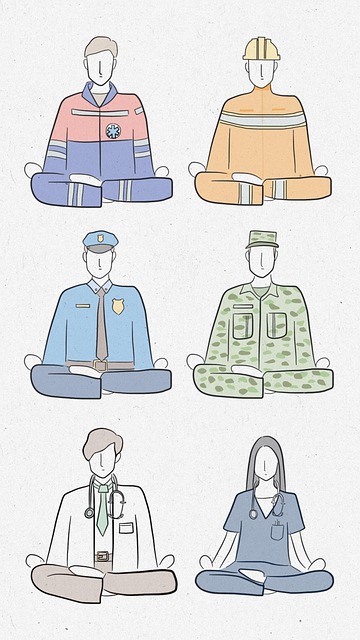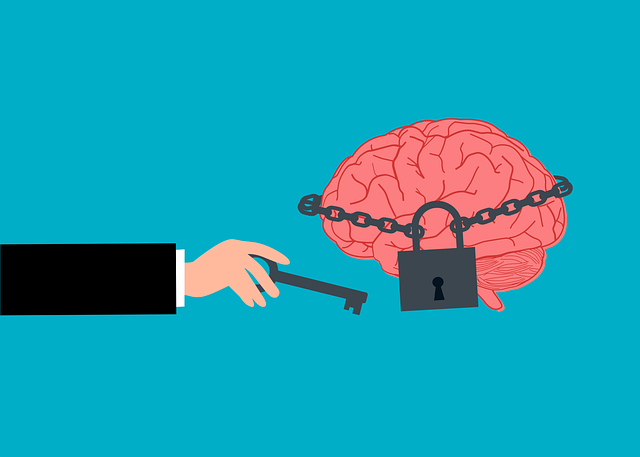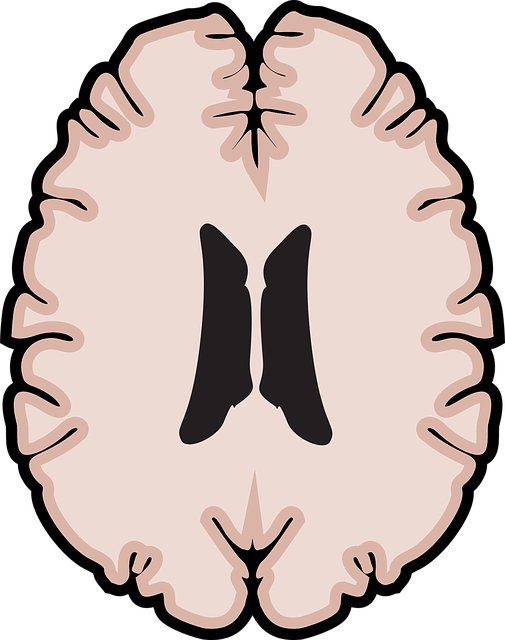Stress from academic, career, and social pressures significantly impacts young adults' mental health, leading to conditions like anxiety and depression, and in severe cases, suicidal thoughts. The 'Mind Over Matter' approach offers a promising solution through workshops teaching cognitive stress management techniques. Cultural competency training for healthcare providers is crucial for addressing diverse populations' unique stressors, enhancing support systems, and encouraging help-seeking behaviors. Effective workshop content balances education and empowerment, including interactive activities, case studies, and open discussions on emotional regulation. Peer-to-peer sharing sessions foster community and reduce stigma, vital aspects of suicide prevention. Implementing these workshops in communities equips young adults with coping skills, while public awareness campaigns promote early intervention and reduce therapy stigma. Integrating them into healthcare provider training enhances cultural competency, ensuring accessible and tailored services for diverse communities, contributing to overall suicide prevention efforts.
Stress management workshops play a vital role in supporting young adults, offering valuable tools to navigate life’s challenges. This article explores the comprehensive guide to organizing such workshops, focusing on understanding stress and its profound impact on this demographic. We delve into creating engaging content tailored for suicide prevention, ensuring effectiveness. Additionally, we provide strategies for community implementation and promotion, emphasizing the importance of accessible therapy for young adults.
- Understanding Stress and Its Impact on Young Adults
- Designing Effective Workshop Content for Suicide Prevention
- Implementing and Promoting Stress Management Workshops in the Community
Understanding Stress and Its Impact on Young Adults

Stress is a prevalent issue among young adults, often stemming from academic pressures, career aspirations, and social expectations. According to recent studies, understanding the impact of stress on this demographic is crucial for their overall well-being. High levels of stress can lead to various mental health challenges, including anxiety and depression, which may, in severe cases, manifest as thoughts of suicide—a growing concern among healthcare providers.
The concept of ‘Mind Over Matter’ emphasizes the power of cognitive techniques to manage stress. Workshops focused on this principle can equip young adults with valuable tools to cope. Additionally, cultural competency training for healthcare providers is essential to address the unique stressors faced by diverse populations, fostering a supportive environment and boosting confidence in seeking help.
Designing Effective Workshop Content for Suicide Prevention

Designing effective workshop content for suicide prevention requires a delicate balance between educating and empowering participants, especially young adults seeking therapy. The focus should be on providing practical tools that promote emotional regulation, a key aspect in managing stress and preventing suicidal ideation. Facilitators can incorporate interactive activities and case studies to engage the audience and foster open discussions on mental health.
Workshops should teach communication strategies that encourage individuals to express their feelings and seek help. By mastering these skills, young adults can navigate stressful situations more effectively and build supportive networks. Additionally, incorporating peer-to-peer sharing sessions allows attendees to learn from one another’s experiences, fostering a sense of community and reducing the stigma around mental health struggles, which is crucial for those considering suicide prevention.
Implementing and Promoting Stress Management Workshops in the Community

Implementing stress management workshops in the community is a powerful strategy to empower individuals with coping skills development, especially for at-risk populations like young adults. These interactive sessions can be tailored to address various stressors, from academic pressures and relationship issues to financial worries and social anxiety. By promoting public awareness campaigns that highlight the importance of mental well-being, organizations can encourage early intervention and reduce the stigma associated with seeking therapy for young adults.
Incorporating these workshops into existing healthcare provider cultural competency training programs is another effective approach. Educating professionals on stress management techniques enables them to better assist diverse communities, ensuring that services are accessible and tailored to specific cultural needs. This holistic approach not only benefits individuals but also contributes to broader suicide prevention efforts by fostering resilient communities.
Stress management workshops play a vital role in empowering young adults with tools to navigate life’s challenges. By combining education on stress recognition and evidence-based techniques, these sessions can act as a game changer in suicide prevention efforts, offering a supportive space for vulnerable individuals to find their inner resilience. Through community promotion and accessible formats, organizations can ensure these workshops reach those who need them most, fostering a healthier, more resilient future for young adults.












